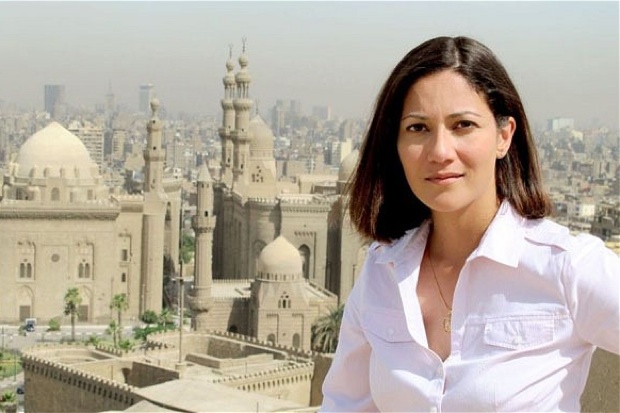Boy, we’ve had to wait a long time for this. But last Thursday morning something unusual happened on Radio 4; something so unexpected, so rich with potential. It happened at peak time in the morning. Eight o’clock. The Today programme. And it began with the news, read by a woman — Corrie Corfield. Of course, there’s nothing unusual about that these days. It’s been decades since the BBC was forced to admit that women can enunciate just as clearly as men and that their ‘lighter register’ is not more difficult to pick up for those who are hard of hearing. Afterwards, though, we had a female presenter, a female co-presenter, a female doctor as a guest, a female Cabinet minister and, wait for it, a woman talking about sport. It was brilliant. I swear that the programme sounded different; less heavy, combative, weighed down by testosterone. Instead it felt lighter of tone (not lighter in content) and less doom-laden. Not less serious, just a lot more hopeful.
Mishal Husain was on only her second day in the job, but straightaway she sounded at ease; her voice calm, measured, totally in control of the situation. There were no half-hysterical high notes, or anxious intakes of breath. Husain, of course, has had her passage through the ranks paved for her by Sue (MacGregor) and Sarah (Montague). They proved (and are still proving) that a woman could ask questions of the big cheeses in politics, industry, the media (mostly, of course, male) without becoming shrill or bursting into tears at the first hint of contradiction. What’s different, though, is that for the first time on Today the studio has been occupied solely by women — as the newspaper pictures showed the following day. We also had 30 minutes, a full half-hour of peak-time radio, totally controlled by the female sex.
Will it make any difference?
I think it just might. Take Thursday morning, as Husain interviewed the Home Secretary. I bet Ms May expected to have an easy time of it, with Husain so new and known for her almost old-fashioned politeness. Instead May sounded increasingly nonplussed, as Husain ever so gently but ever so firmly refused to allow her to indulge in her usual tactic (or, should I say, her Westminster habit) of never answering the question.
May was invited, and was keen, to talk about the government’s new immigration bill. Husain had set up the questions in her previous interview, which had established that in one GP’s practice, at least, there simply is not a problem of large numbers of illegal immigrants demanding NHS treatment (it should be noted the GP works in east London). Husain wanted to know whether May knew how many of these supposed ‘health tourists’ there are.
May responded, ‘What I was going to say…’ before blurbing on about the wider aims of the proposed bill.
Husain interrupted, with exquisite courtesy, ‘I’m not asking about principle. But how big a deal is it?… Is it [health tourism] really worth tackling?’
‘This is about a point of principle,’ May persisted, only to be cut off, quietly but surely.
‘So for you it’s a point of principle, not necessarily the reality?’
Ms May just didn’t get it, as she continued to hark on about this elusive ‘point of principle’ and how unfair it was for ‘ordinary hard-working people’, whoever they might be.
You could say there was nothing special about this, but actually it was different. May was shown up to be papering over the cracks — not by bullish bantering, as is usually the case with political interviews, but by softly spoken determination. Might she as a consequence decide to abandon the old tricks of political performance? To look for new ways of getting her voice heard? Who knows, but we can always hope.
Over on the World Service, this month, 100 women are being celebrated in short features that tell us of their lives, their hopes and dreams, their trials and despair. Not big names (although Chelsea Clinton guest-edited the World Service’s Newshour on Monday as part of the season), but ordinary, unknown women, such as Polly Apio, a Ugandan farmer. In Women Farmers (next Monday), she tells Cecile Wright about her belief in the power of education. Polly gets up at first light to sweep the compound before walking four kilometres to collect water from the borehole. She has five children to feed and send to school, and no husband. ‘Women’s work never gets finished,’ she says.
At the other extreme, in Betty in the Sky with a Suitcase on Monday we heard from Betty Thesky, who for the past 25 years has been a flight attendant with an American airline — and she still loves the job. She can’t understand why we no longer dress up to go on the plane. How come we no longer believe it to be exciting, glamorous, extraordinary? Two such women you are unlikely to meet in the course of a normal day, but here we were taken right inside their lives. They talked so frankly, so openly, without artifice or persuasion. On women, by women, but for everyone.






Comments